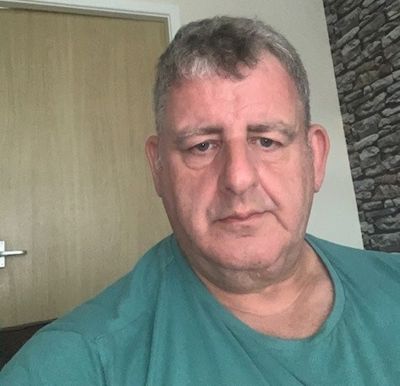“It is often discouraged for men to share their emotions” - Lol’s story
25/09/2024
Lol shares the stigma he's faced both indirectly (due to his father's psychosis) and directly, from his own experience with severe depression.
My name is Lawrence, but I'm more usually called Lol. I’m 63 years of age and have experienced severe depression for many years. I take medication and also exercise at the local gym regularly to maintain my mood, physical exercise and social contact.
I’m semi-retired. I worked for 40 years as a qualified mental health nurse. I now work part-time as a teaching assistant at a local special school for children with autism. I like to spend time with my two grandchildren. I also dedicate time towards tackling the stigma of mental health, promoting more awareness and understanding through the media.
I experienced the stigma of my father’s psychotic breakdowns as a young child of about nine. My father worked at the village school and I’d help him on Sunday evenings where he maintained the coal fired boilers.
-
I didn’t know what the word stigma meant at the time, but I recall experiencing a mixture of emotions – hurt, shame, guilt for feeling ashamed of my father and feeling very lonely
A lady who also worked at the school approached me on one occasion when I was alone, to ask me why my father had been off work and if he’d been in a mental hospital. He’d spend time as an inpatient at a local mental health hospital. Little was said when he was hospitalised, but everyone in the village knew where he was.
Her questioning became very personal and felt like an interrogation. I didn’t know what the word stigma meant at the time, but I recall experiencing a mixture of emotions – hurt, shame, guilt for feeling ashamed of my father and feeling very lonely. Those thoughts and feelings became forever etched in my memory.
-
It is often discouraged for men to share their emotions. 'Big boys don't cry' is a mantra learnt from an early age.
In Teesside, stigma is very much a cultural thing. This is a region of steelmaking, shipbuilding and coal mines, or it was before those industries were decimated. As such there is a tough, 'macho' culture. This is why I think stigma and suicide rates are so high in this region. It is often discouraged for men to share their emotions. 'Big boys don't cry' is a mantra learnt from an early age.
Let's Rethink
At the age of 18, I moved to the south of England to work in a large psychiatric hospital. On reflection, I believe this decision was subconscious. It gave me an opportunity to learn more about mental illness and psychosis, the condition my father had. I trained as a qualified mental health nurse. I became more self aware. I understood how the traumatic events in my childhood impacted my overall self confidence and self-esteem.
Following a breakdown at work, I was diagnosed with severe depression. Most of my colleagues were supportive, but there were others who didn’t share the same empathy. Some believed 'I was letting the side down' by being so open about my mental health struggles and showing that nurses are as vulnerable as anyone else. I was told that stress and depression 'goes with the territory'. In other words, ‘if someone cannot handle this, they’re in the wrong job’.
-
My life story has become a catalyst for me to dedicate more time challenging stigma
My GP at the time was reticent to put depression on my sicknote without me confirming I was happy with this. I feel this wouldn’t have been the case with most other illnesses at the time.
I’ve struggled at times since with low self-esteem, but managed to have a successful career through sheer determination and resilience. I appreciate I had to strive harder than most in order to overcome my childhood family experiences. I had experienced severe depression but could empathise with others more. My life story has become a catalyst for me to dedicate more time challenging stigma.

